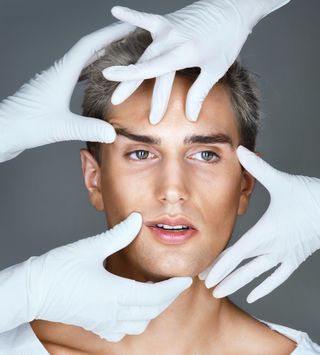Perfectionism is on the Rise
Is the Perfectionism Plague Taking a Psychological Toll?
The rise of perfectionism among young people has psychological consequences.
Posted Jan 03, 2018

The first study to examine generational differences in perfectionism over the past three decades reports that young people’s desire to be flawless has skyrocketed over the past thirty years. Today’s college-age students are much more prone to perfectionism than prior generations, according to the new report.
This paper, “Perfectionism Is Increasing Over Time: A Meta-Analysis of Birth Cohort Differences From 1989 to 2016,” was recently published in the journal Psychological Bulletin.
For this study, lead author Thomas Curran of the University of Bath and co-author Andrew Hill of York St. John University, meta-analyzed data from 41,641 college students in the United States, Canada, and the United Kingdom. They also used the Multidimensional Perfectionism Scale to gauge generational changes in perfectionism from the late 1980s to 2016. During their meta-analysis, Curran and Hill investigated three types of perfectionism:
- Self-oriented perfectionism: Imposing an irrational desire to be perfect on oneself.
- Other-oriented perfectionism: Placing unrealistic standards of perfection on others.
- Socially-prescribed perfectionism: Perceiving excessive expectations of perfection from others.
The statistics are alarming: Between 1989 and 2016, self-oriented perfectionism scores increased by 10 percent, other-oriented perfectionism increased by 16 percent, and socially-prescribed perfectionism increased by a whopping 33 percent.
In describing the possible link between the rise of perfectionism and psychopathology, the authors write:
"In reflecting on our findings, one issue of special relevance is the harm and psychological difficulties that might accompany an increase in perfectionism. According to the most recent global health estimates from the World Health Organization (2017), serious mental illness afflicts a record number of young people. In the United States, Canada, and the United Kingdom, young people are experiencing higher levels of depression, anxiety, and suicide ideation than they did a decade ago (e.g., Bloch, 2016; Bor, Dean, Najman, & Hayatbakhsh, 2014; Patel, Flisher, Hetrick, & McGorry, 2007). They also report more loneliness and present to clinicians with eating disorders and body dysmorphia at a higher rate than generations previous (e.g., Paik & Sanchagrin, 2013; Smink et al., 2012; Thompson & Durrani, 2007)."
What's Driving the Increase of Perfectionism Among Young People?
The rise in perfectionism among college students is driven by a variety of factors, according to Curran. The raw data suggests that the growing use of social media could be fueling the pressure young adults feel to perfect themselves in comparison to others. That said, Curran emphasizes that more research is needed to confirm the correlation between an uptick in social media usage and increased perfectionism.
Curran also speculates that college students' drive to perfect their grade point average represents a rise in meritocracy among millennials. As he explained in a statement: "Meritocracy places a strong need for young people to strive, perform and achieve in modern life. Young people are responding by reporting increasingly unrealistic educational and professional expectations for themselves. As a result, perfectionism is rising among millennials."
In 1976, only about half of high school seniors were expected to earn a college degree. By 2008, that number had risen to 80 percent. Unfortunately, the cut-throat competition among the growing number of degree holders appears to be exacerbating people's desire to strive for perfection.
"Today's young people are competing with each other in order to meet societal pressures to succeed and they feel that perfectionism is necessary in order to feel safe, socially connected and of worth," Curran said.
Andrew Hill sees these findings as a clarion call for colleges and policymakers to increase their efforts to curb unnecessary competition among young people in order to preserve their mental health. Unfortunately, this may be easier said than done.
References
Thomas Curran and Andrew P. Hill. "Perfectionism Is Increasing Over Time: A Meta-Analysis of Birth Cohort Differences From 1989 to 2016." Psychological Bulletin(Published: December 28, 2017) DOI: 10.1037/bul0000138
